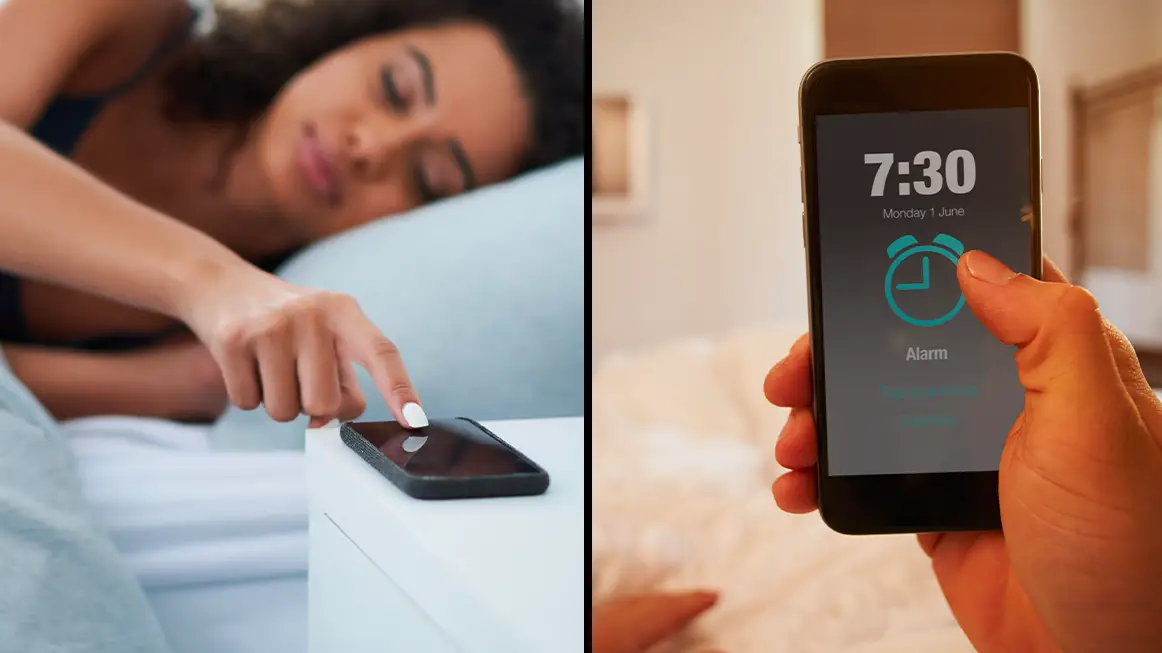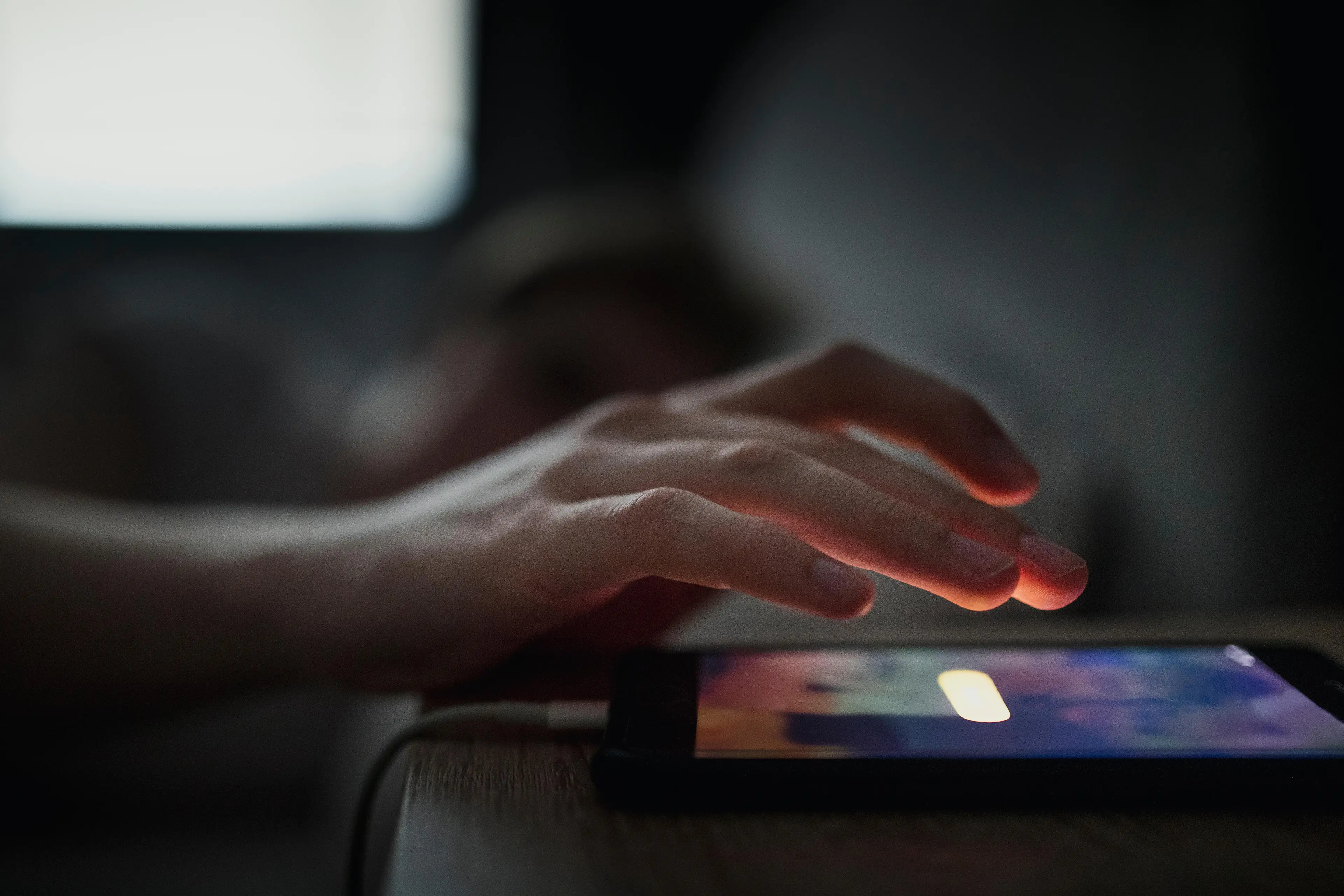
There's a very good scientific reason why you should never push the snooze button once your alarm has gone off and woken you up in the morning. You can see an explanation of the reasoning behind this in the video below.
We’re all guilty of it - the alarm goes off, jolting you awake first thing in the morning before work, and you’d give anything to have an extra couple of hours in bed.
But, a couple of hours aren’t on offer to you, you’ve only got about 10 or 15 minutes.
Advert
So, we roll over, flick the snooze button and then forget that it ever happened.
The problem is, when you actually then have to get up at the last minute, you feel like absolute s***.
The snooze button seems like a great idea at the time, but rarely do you ever manage to get up feeling any more rested or any more ready for the day.
Well, there’s some sleep science behind that.

Speaking on her podcast, Mel Robbins - who describes herself as ‘one of the most respected experts on change and motivation’ - explained the scientific reason why you’re only hurting yourself by sneaking in those final few minutes.
You’re better off just getting up.
Robbins said: “You want to know the scientific reason why you should never hit the snooze button?
“Let me hit you with some neuroscience here.
“Two words sleep inertia.
“When you hit the snooze button, you're awake, and as the alarm turns off, your brain then drifts back into sleep.

She continued: “Here's the thing that researchers have figured out - when you drift back to sleep after you've woken up, your brain starts a sleep cycle.
“Sleep cycles take 75 to 90 minutes to complete.
“So, when that alarm goes off again and nine minutes and you're like ‘oh my God’ - have you ever noticed you're in deep sleep when you drift back to sleep?
“That's because you're nine minutes in to a 75 minute sleep cycle, that groggy exhausted feeling that you have, that's not a function of how well you slept.
“That's you and me being an idiot for hitting the snooze button and putting our brain in a state of sleep inertia.
“It takes your brain about four hours to get through that groggy-a** feeling."

She concluded: “When the alarm rings, get your a** out of bed.”
There you have it - instead of chasing the impossible dream and expecting an extra 10 minutes to make all the difference, you’re better off just dragging yourself up and getting into the shower.
Once you’ve woken up a bit, you’ll feel better for it.
Robbins speaks about subjects such as this in great detail over on her podcast, which can be found here.